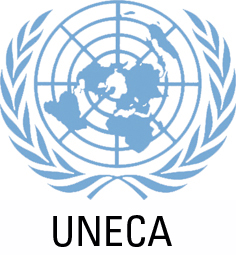Focal point
Location
P.O. Box 3001
Addis Ababa, Ethiopia
Established by the Economic and Social Council (ECOSOC) of the United Nations (UN) in 1958 as one of the UN's five regional commissions, ECA's mandate is to promote the economic and social development of its member States, foster intra-regional integration, and promote international cooperation for Africa's development.
Made up of 54 member States, and playing a dual role as a regional arm of the UN and as a key component of the African institutional landscape, ECA is well positioned to make unique contributions to address the Continent’s development challenges.
ECA’s thematic areas of focus are as follows:
- Macroeconomic Policy
- Regional Integration and Trade
- Social Development
- Natural Resources
- Innovation and Technology
- Gender
- Governance
Members:
Resources
Displaying 501 - 505 of 872Food strategies in the African least developed countries: an assessment
This study, which is part of in-depth studies on the economies of African least developed countries envisaged in the ECA Medium-term Plan for the period 1984—1989, underscores the objective of the attainment of food self—sufficiency as a priority area called for in such key documents, as Freetown Declaration (November 1976) of Ministers of Agriculture, the Regional Food Plan for Africa (l978) the Monrovia Declaration of Commitment on Guidelines and Measures for National and Collective self-reliance in social and Economic Development for the Establishment of a New Economic Order (July 1979),
Food strategies in the African least developed countries: an assessment
This study, which is part of in-depth studies on the economies of African least developed countries envisaged in the ECA Medium-term Plan for the period 1984—1989, underscores the objective of the attainment of food self—sufficiency as a priority area called for in such key documents, as Freetown Declaration (November 1976) of Ministers of Agriculture, the Regional Food Plan for Africa (l978) the Monrovia Declaration of Commitment on Guidelines and Measures for National and Collective self-reliance in social and Economic Development for the Establishment of a New Economic Order (July 1979),
Producers co-operatives and rural development in Ethiopia
The main objectives of the cooperative societies of the 1960’s were the promotion, in accordance with cooperative principles and the requirements of social justice, of better living, better business and better methods of production by reducing the cost of credit, etc. Most of the societies then were farmers' cooperatives whose membership were composed of land owners, provincial and district Governors businessmen, etc. The leadership was also controlled by the same people.


